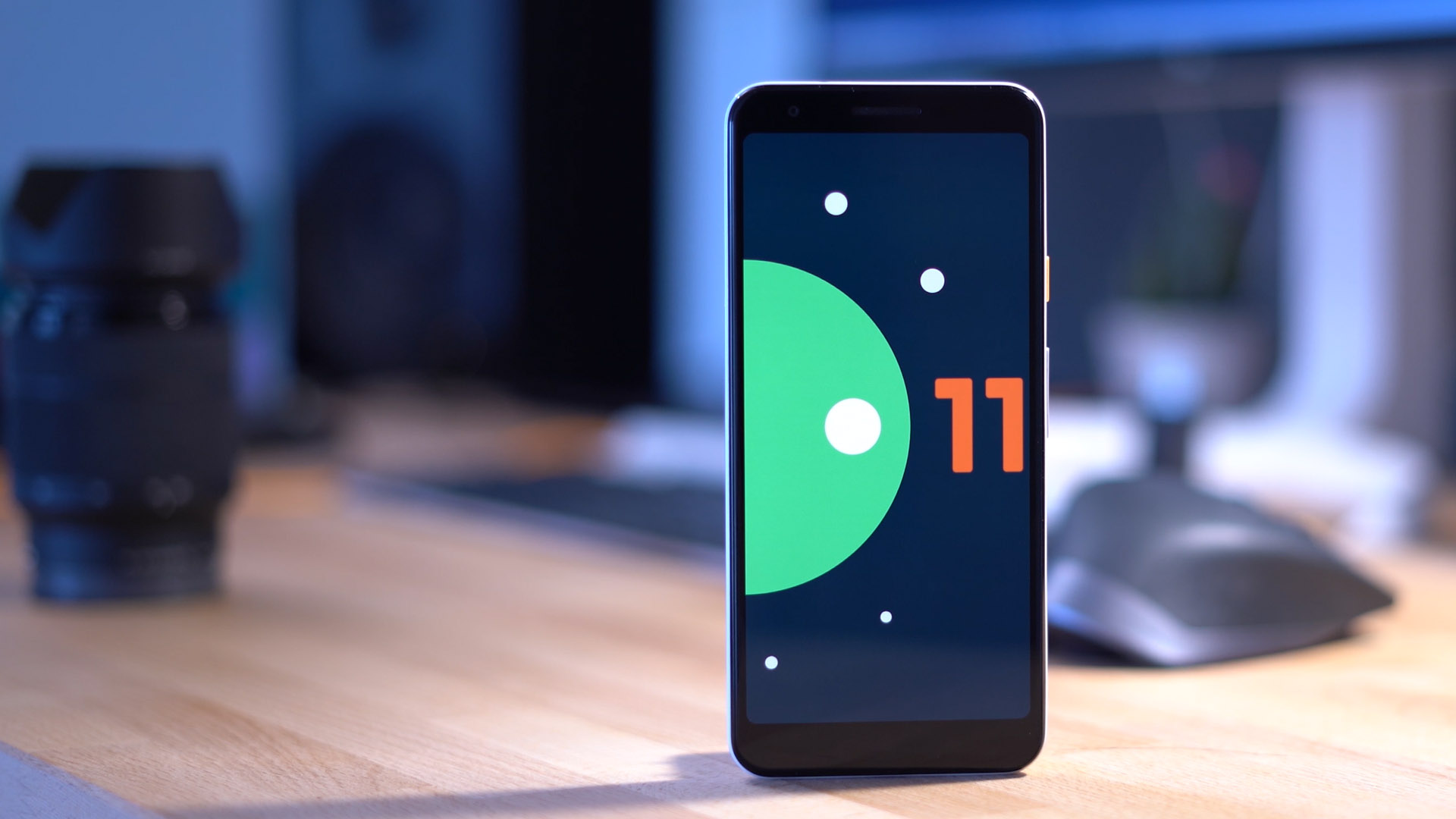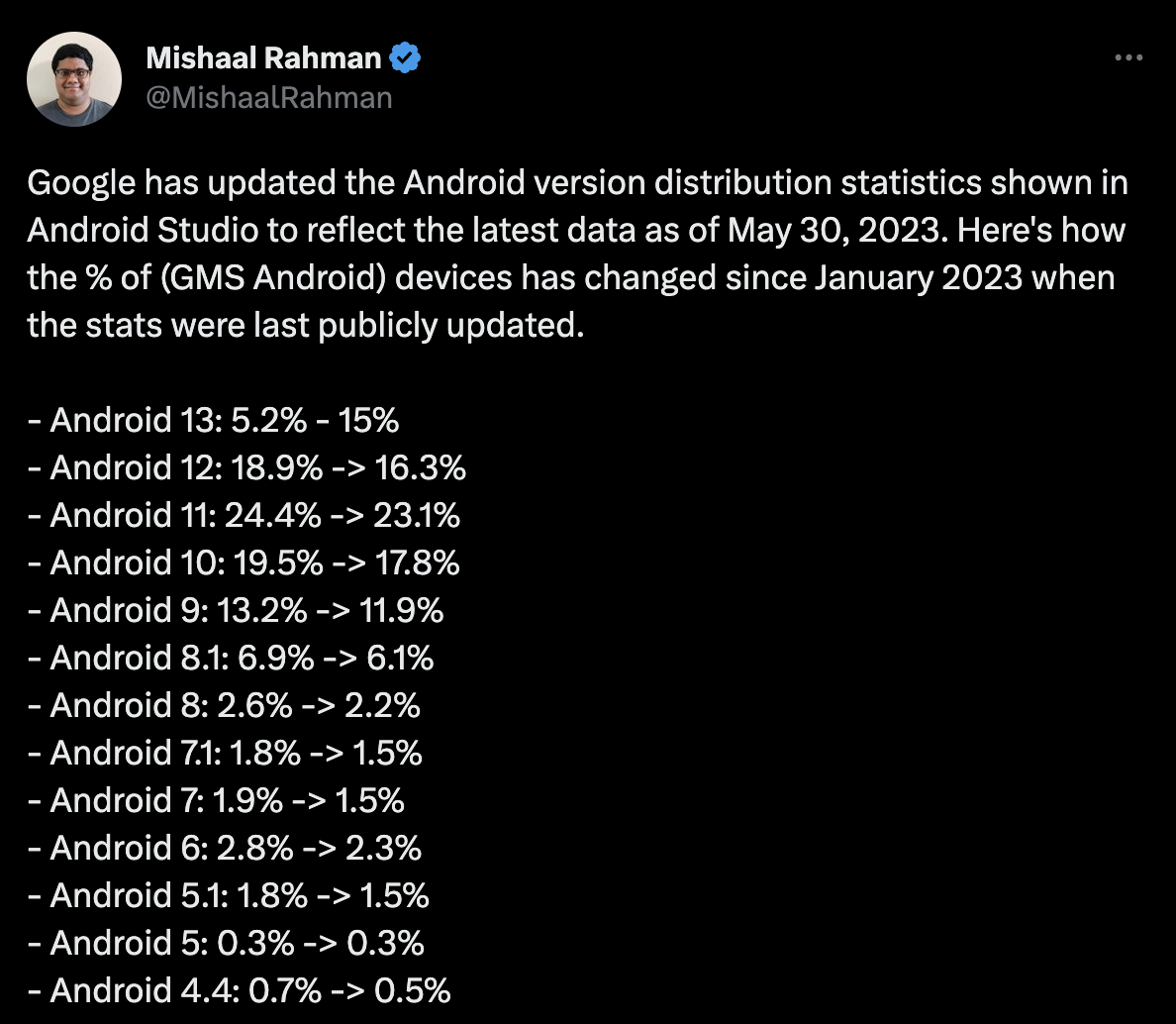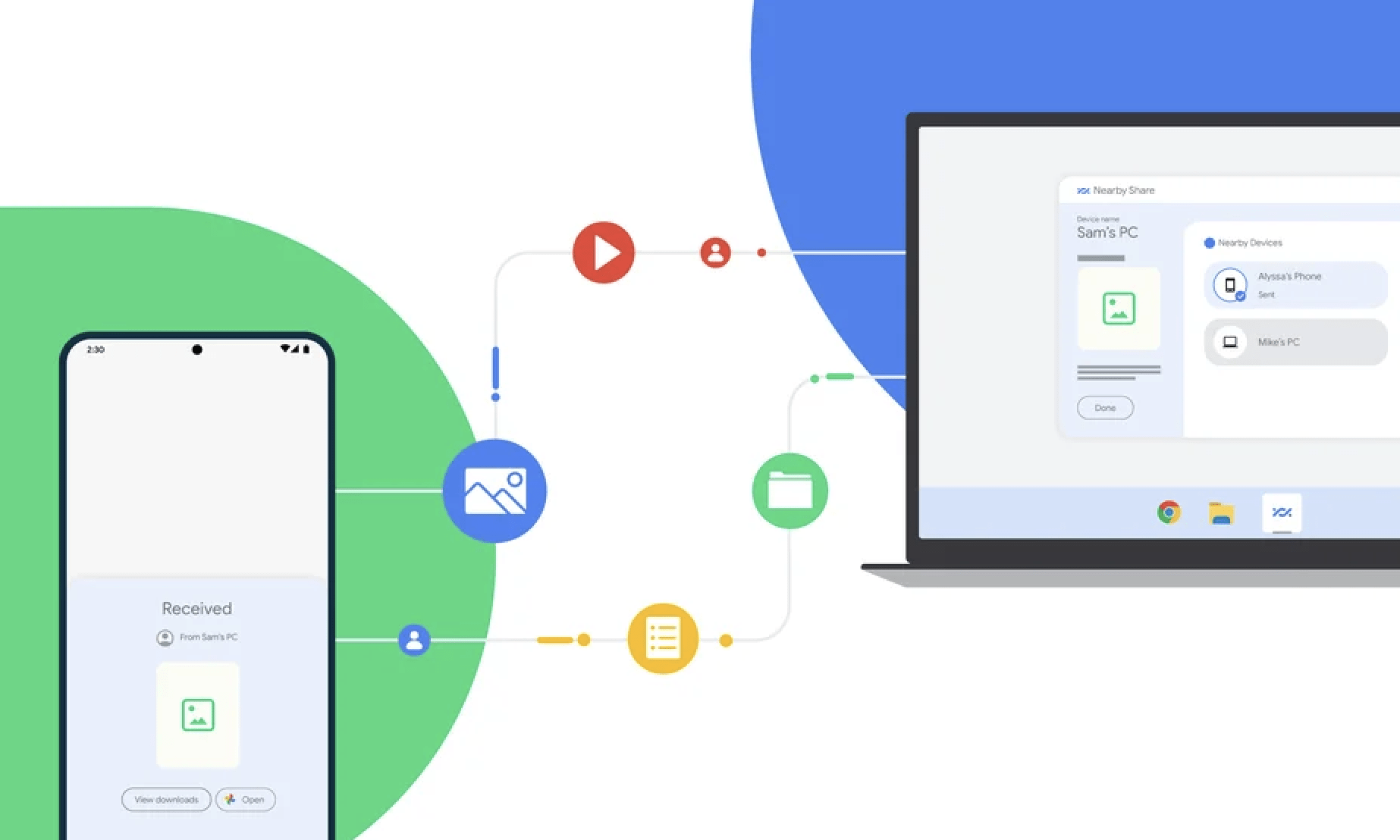An advantage of being important for Mac's environment is the Handoff highlight, where you can fundamentally switch between gadgets like an iPhone and iPad effectively and take up where you left out. It likewise works with FaceTime calls, so on the off chance that your phone isn't close by, you can respond to it on your tablet, and afterward move it to your iPhone later assuming you like.
![]()
It's anything but an especially new component, yet it seems as though Google is at last prepared to add it to Android. This will be finished through Google's new Telecom Jetpack library that the organization declared at I/O back in May, which is a Programming interface that engineers can utilize so they can reroute sound to viable gadgets, similar to a smartphone to a tablet.
One benefit of this is that since it's a Programming interface, it will permit engineers to integrate it into their applications, giving clients greater adaptability not at all like Apple's execution which is by all accounts limited to their own applications. Likewise, something else to note is that the component is more similar to a stream, implying that you're not actually moving one call starting with one gadget then onto the next.
The principal call itself will in any case be dealt with by the source gadget, as in the gadget you responded to it on, however you'll in any case have the option to control parts of it like hanging up, changing volume, etc, yet in the occasion the source gadget runs out of battery or accidents, it will influence the approach the other gadget too.
It is hazy as of now which applications will be exploiting this new Programming interface, so we'll simply need to sit back and watch, yet we envision that Google will most likely be carrying out it into its own local applications and administrations.

Android 14 is set to make its presentation in a couple of months, and its forthcoming appearance has without a doubt made a ton of promotion and pomp about new and impending elements. Considering that however, you may be amazed to realize that a more seasoned adaptation of Android actually rules (here's a clue: it's not Android 13).
Tech essayist Mishaal Rahman as of late shared a few measurements with respect to Android dispersion information among clients around the world, showing that Android 14 actually has a ton of making up for lost time to do with regards to accessibility on gadgets, as well as client reception. As indicated by Google's refreshed Android form dispersion information, Android 11 actually stays the most broadly utilized rendition of the stage with a 24.4% offer generally, while the ongoing Android 13 variant just sums to a somewhat low 5.2%.

He adds that the level of "GMS Android" gadgets running Android 13 has almost significantly increased since January 2023, and keeping in mind that Android 13 was at first answered to be on 12.1% of gadgets (as per information from mid-April), this supposed information never showed up straightforwardly in Android Studio.
The pattern of more established Android renditions being available on a greater part of client gadgets is certainly not another one - the issue has for quite some time been predominant, in spite of the fact that Google has made strides towards seriously giving all the more ideal updates across various gadgets from a plenty of OEMS. Whether these means will show successful over the long haul actually is not yet clear, be that as it may.

If you're in Apple's ecosystem, then chances are you might be familiar with AirDrop, which allows users to wirelessly share files across devices like iPhone to iPad, iPad to a Mac, Mac to an iPhone, and so on. Google debuted their own version called Nearby Share a couple of years ago, which eventually made its way onto Windows computers.
Now, previously the feature was only available in beta and was limited to a handful of countries like the US. The good news is that if you don't live in the US but think that this could be a useful feature, then you might be pleased to learn that Nearby Share is now available to all Windows users around the world.
According to Google's support page, there are some countries where it is not supported which includes Cuba, Iran, North Korea, and Syria, so unless you live in any of those countries, you should be able to take advantage of this feature.
Also, take note that there are some hardware and software requirements you'll need to meet to get the feature up and running. This includes a 64-bit version of Windows 10 or later, an Android device running at least Android 6.0 or later, Bluetooth connectivity, and you'll need to make sure that both your Android device and Windows PC are connected to the same WiFi network and are within 16 feet or 5 meters of each other.
Have you at any point experienced how when you switch your phone's presentation off and betray, it is blindingly brilliant? This is on the grounds that your phone's showcase is set at a specific level when locked and stays that way until it is opened, after which it will then, at that point, consequently correct itself.
For the individuals who have been dazed on numerous occasions because of this framework, you may be satisfied to discover that Google is at last going to take care of business. As per a report from Mishaal Rahman, apparently inside Android 13's QPR2's source code, Google is dealing with a way for Android to distinguish the radiance of your environmental factors to decide your phone's underlying brilliance level, in any event, when your presentation is switched off.
This implies that suppose you were outside and your phone's splendor was consequently set to the greatest levels, you lock it, place it in your pocket, and go into a dull room like a film. Rather than your phone's screen currently being at the maximum levels, it will actually want to utilize the surrounding light sensor to recognize that it is dull and bring down the brilliance so you don't visually impaired yourself when you open your phone.
On the off chance that this sounds like a wonderful element, you should watch out for it in the following update. It is right now just accessible in the Android 13 QPR2 so it is possible that it will be accessible as a component of the following Android update, or it very well may be turned over to Android 14.
![]()
We're certain that a large number of you have seen promotions or gone over applications that case to cause your phone to feel quicker, otherwise called "task killer" applications. While these applications aren't precisely lying, fundamentally what it does is it kills the cycles of applications running behind the scenes, which gives a brief lift in apparent speed.
Sadly, these applications more frequently cause damage than great, and it appears to be that come Android 14, Google is rolling out certain improvements that will deliver a ton of these purported "task killer" applications futile, as indicated by Esper's Mishaal Rahman. Google is doing that they will be confining admittance to one of the APIs that these "task killer" applications use. As indicated by Google's clarification:
"Android is designed to keep cached apps in the background and kill them automatically when the system needs memory. If your app kills other apps unnecessarily, it can reduce system performance and increase battery consumption by requiring full restarts of those apps later, which takes significantly more resources than resuming an existing cached app."
While killing the course of applications, similar to we said, it gives the phone an impermanent lift in speed, however the adverse consequences normally offset the momentary advantages, so as a general rule, these applications don't be guaranteed to do that much for the client.
That being said, it very well may be some time before we see these "task killer" applications grow dim from the Play Store since these progressions are simply applied to Android 14 which hasn't been delivered at this point, and, surprisingly, then, at that point, it very well may be quite a while before most of phones are moved up to the most recent variant.
© 2023 YouMobile Inc. All rights reserved






